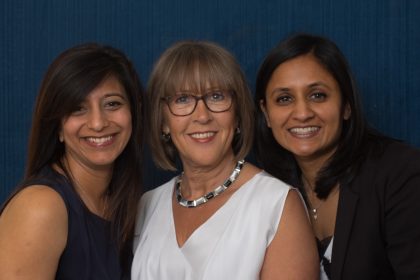Seven tips to help you have a ‘good’ divorce
Has your marriage come to an end? Find out why a good divorce is better for everyone involved, and seven tips to help you work things out amicably.
If you are thinking of separating or have you recently separated, you might be wondering if it is possible to achieve a good divorce as opposed to one which is blighted by acrimony and stress for all involved.
The theme of the good divorce was recently explored in the BBC legal drama The Split which aired earlier this year. The drama is based around the lives of the Defoe family of which the mother and two of the daughters are family lawyers working together in a law firm.
The most recent series dealt with the divorce of protagonist, Hannah, from her family law barrister husband Nathan. Throughout the series, viewers watch as the couple try to achieve a good divorce while dealing with their own legal careers, caring for their children and other family dramas.
Despite the inevitable ups and downs, the couple are successful in their quest to achieve a good divorce. So is it possible to divorce in an amicable and constructive way?
A good divorce IS possible
A good divorce is not always a work of fiction. Last year we saw several high profile divorces documented in the press where the couples appeared to achieve an amicable and successful outcome for the whole family.
A good example is that of Bill and Melinda Gates who announced they were to divorce after 27 years of marriage. So how does the fourth richest man on the planet look at splitting his $124 billion fortune in a way that allows for both of them to feel that they have separated constructively?
Although the details were never made public, the couple entered into a ‘separation contract’ which ensured that they were able to continue to work together to run the Bill and Melinda Gates Foundation. The couple made it clear that they arrived at this outcome by instructing three lawyers to assist them in reaching the agreement and drafting the separation contract constructively round a table.
The Gates’ are not the only high profile couple to recently split and engage in the use of alternative dispute resolution. Last year, Adele and Simon Konecki finalised their divorce and £140 million financial settlement with the assistance of family mediators.
Seven tips to help you have a ‘good’ divorce
So how can you have an amicable divorce? Here are seven tips from divorce lawyer Jayne Martins.
1) Understand you will both go through a grieving process
Firstly, it is important to remember that when a marriage breaks down, both parties will usually go through the grieving process. This process consists of denial, pain and fear, anger, bargaining, guilt, depression and acceptance.
Normally one spouse will be at a different stage of the grieving process to the other. This often leads to conflict because the couple are experiencing different emotions at different times.
By understanding this and allowing each other sufficient time to come to terms with the relationship breakdown, you will help each other come to terms with their emotions and feelings. This may seem impossible at first but it is the first step towards a good divorce.
2) Discuss how you will formalise your separation
If possible, discuss with each other how you are going to formalise your separation. Are you both going to instruct solicitors? If the answer is yes, try to agree a timeframe to seek legal advice.
Be open and honest with each other about your intention to seek professional advice so that it is not seen as a form of aggression thereby causing hostility. Ensuring that both sides obtain legal advice is sensible so that you are both aware of the implications of any decisions you make.
3) Find a solicitor who deals with amicable divorces
If you are going to instruct solicitors try to find a solicitor who is committed to dealing with separations and divorce in a constructive and amicable way. Resolution is a body of solicitors who are committed to dealing with family separations in a way that is constructive, child focused and amicable.
Make time to meet with your solicitor and find out if their views are aligned with yours and to get a feel as to whether you would have a good working relationship. Your solicitor is there to support you through the process and a good one will be able to advise on the best outcome for your family as a whole with the aim of reducing conflict and not increasing it.
4) Consider mediation or a collaborative lawyer
Consider alternative methods for discussing the practicalities of your separation, including arrangements for children and the dividing of any assets, such as mediation or instructing a collaborative lawyer.
Mediators are trained to work with both parties together in a room and to assist them in discussions to ensure that an outcome can be reached in a fair, reasonable and constructive way. Collaborative lawyers work on the basis that a couple does not want to go to court and are therefore committed to resolving matters constructively round a table.
5) Work on your communication
Learn to communicate effectively with each other after your separation even if there are moments when you never want to speak to your former spouse again! If you have children, it is particularly important to keep the lines of communication open so that you can have a successful coparenting relationship.
You will need to work out ways of effectively communicating with each other which will include thinking about the timing of any communication and agreeing the method of communication.
Emails and text messages are good ways of relaying short, practical pieces of information but are not sensible when trying to agree important emotive matters such as arrangements for children. It is usually better to agree a time with each other to speak on the telephone if you feel able to do so and set parameters for the call and agree what you will discuss.
Without an effective communication, things might get complicated especially in discussing custody of children. Call this lawyer for guidance on how to navigate legal process for coparenting while ensuring that the best interests of your children remain at the forefront.
6) Think about the bigger picture
Try to consistently consider the bigger picture. Pick your battles and don’t let anger dictate your responses. It may be that what seems important on one day is less so the next or what seems important when looked at the bigger picture becomes less so.
I always advise my clients to hold fire when their former spouse does something to make them angry or upset so that any response is measured and considered.
7) Put your children first
If you have children, do not involve the children in the process and always put them first. It is important that you and your ex both recognise that children need reassurance that the divorce or separation is not their fault, that you both love them, and you are both committed to parenting them.
8) Remember: this will pass
As all-consuming as divorce can feel when you are in the midst of a split, always try to remember that the situation is temporary. Things will get better with the right advice and support along the way. And one day you will look back and this will seem a distant memory.
You can read more advice on achieving an amicable divorce here.
A good divorce is better for you and your children
The benefits of obtaining a good divorce are significant particularly where there are children involved. Research shows that conflict between parents is the only damaging factor to children when parents separate so if you can achieve an amicable divorce which avoids conflict, your children will emerge unscathed.
A good divorce means that parents are often able to coparent with each other more effectively and their children greatly benefit from a supportive family environment where they are able to thrive.
A good divorce will also help you to emotionally cope better with the separation and research shows that divorce agreements made in a constructive and amicable way tend to be longer lasting than those imposed by a Judge or those that are hard fought through solicitors which are often the subject of later disputes.
Jayne Martins in a partner in the family team at RWK Goodman. Jayne is a member of Resolution and Chair of the Bath Resolution Group.
Photo by Morgan Rovang










